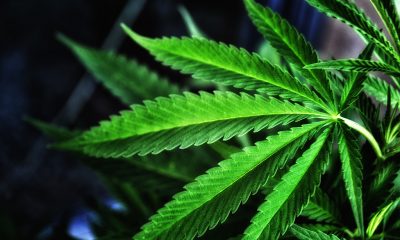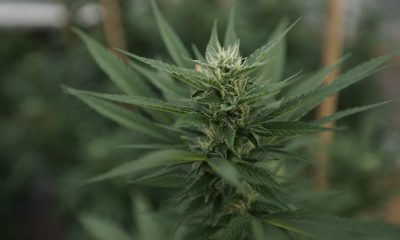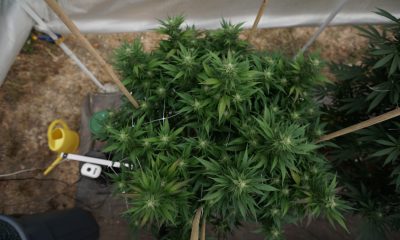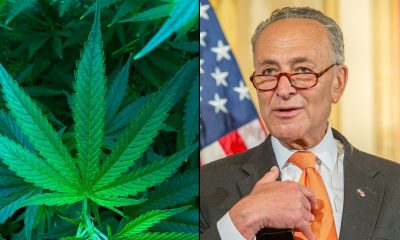Politics
Colorado Activists Collect Tens Of Thousands Of Signatures To Put Psychedelics Reform On Ballot
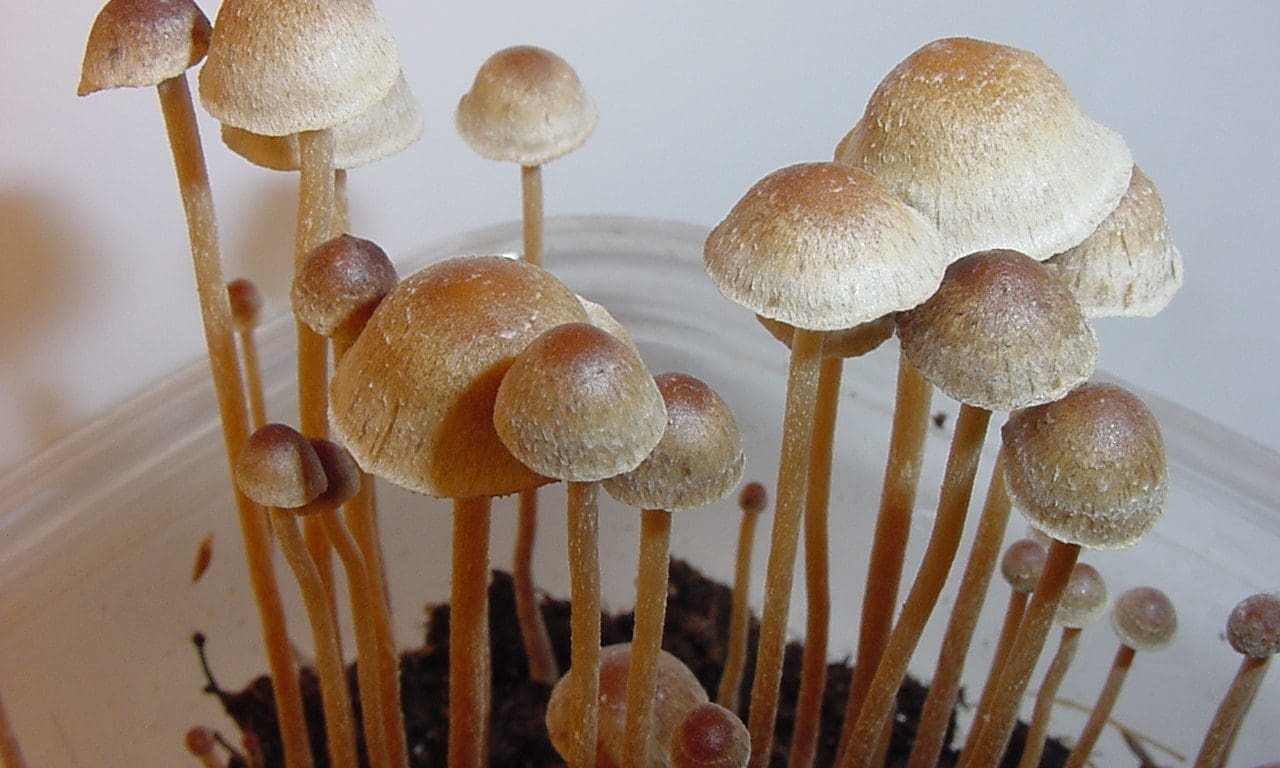
Colorado activists have wasted no time working to place competing initiatives to legalize psychedelics on the state’s November ballot, with one campaign saying that it’s already collected nearly half of the required signatures needed to qualify its measure.
Natural Medicine Colorado, a campaign backed by the national New Approach PAC, filed several versions of reform initiatives before deciding on one to pursue in March. It would legalize possession of certain psychedelics, create licensed psilocybin “healing centers” where people can use the substance for therapeutic purposes and provide a pathway for record sealing for prior convictions.
In just about two months since being approved for petitioning by state officials, the group has made significant progress.
“We’ve been collecting signatures for about six weeks and have approximately 40 percent of the 124,632 signatures we need from voters to appear on the ballot this November,” Kevin Matthews, a chief petitioner who previously served as the campaign manager of Denver’s historic 2019 vote to locally decriminalize psilocybin, told Marijuana Moment.
“We’re excited to finalize our signature collection in the coming months and hit the ground running this fall to bring regulated access to natural medicine for Colorado,” he said.
Here’s what the Natural Medicine Health Act initiative would accomplish:
Possession, use, cultivation and sharing of psilocybin, ibogaine, mescaline (not derived from peyote), DMT and psilocyn would be legalized for adults 21 and older, without an explicit possession limit. There would be no recreational sales component.
Under the proposal, the Department of Regulatory Agencies would be responsible for developing rules for a therapeutic psychedelics program where adults 21 and older could visit a licensed healing center to receive treatment under the guidance of a trained facilitator.
There would be a two-tiered regulatory model, where only psilocybin and psilocyn would be permitted for therapeutic use at licensed healing centers until June 2026. After that point, regulators could decide whether to also permit regulated therapeutic use of DMT, ibogaine and mescaline.
The decision to add additional substances to the program would be made by the Department of Regulatory Agencies in consultation with a new 15-member Natural Medicine Advisory Board that includes people who have experience with psychedelic medicine in a scientific and religious context.
People who have completed their sentence for a conviction related to an offense made legal under the act would be able to petition the courts for record sealing. If there’s no objection from the district attorney, the court would need to automatically clear that record.
Meanwhile, a separate campaign headed by Decriminalize Nature Colorado, which has taken issue with some of the regulations prescribed in the Natural Medicine Colorado measure, filed a competing initiative in January, and activists are also making headway in signature gathering.
That campaign’s one-page measure would simply allow adults 21 and older to possess, cultivate, gift and deliver psilocybin, psilocyn, ibogaine, mescaline and DMT.
Further, the proposal says that it would be lawful to conduct psychedelics services for guidance, therapy and harm reduction and spiritual purposes with or without accepting payment. It would not be legal to sell any of the psychedelics, however.
Advocates with the group started collecting signatures for the proposal in April, and they’ve been hosting events across the state where people can learn more about the initiative and sign the petition.
Marijuana Moment reached out to Decriminalize Nature Colorado for details about how many signatures have been collected to date, but a representative was not immediately available.
Meanwhile, Colorado Gov. Jared Polis (D) was recently asked about the prospects of enacting psychedelics reform in the state, and he acknowledged that advocates are working to accomplish that policy change at the ballot and also said he supports the idea of decriminalizing the substances.
Meanwhile, the governor will have a chance to sign a more modest psychedelics reform bill into law after the legislature sent him a measure to align state statute to legalize MDMA prescriptions if and when the federal government ultimately permits such use.
Colorado is far from the only state where psychedelics legislation is advancing.
For example, the governor of Connecticut recently signed a large-scale budget bill that includes provisions to set the state up to provide certain patients with access to psychedelic-assisted treatment using substances like MDMA and psilocybin.
Maryland lawmakers recently sent a bill to the governor that would create a state fund to provide “cost-free” access to psychedelics like psilocybin, MDMA and ketamine for military veterans suffering from post-traumatic stress disorder (PTSD) and traumatic brain injury.
The Maine Senate approved a bill last month to to create a medical psilocybin program in the state, but the House of Representatives refused to go along.
Also last month, Georgia lawmakers advanced a bipartisan resolution that calls for the formation of a House study committee to investigate the therapeutic potential of psychedelics like psilocybin and make recommendations for reforms.
The governor of Utah signed a bill in March to create a task force to study and make recommendations on the therapeutic potential of psychedelic drugs and possible regulations for their lawful use.
A Missouri House committee also held a hearing that month on a GOP-led bill to legalize a wide range of psychedelics for therapeutic use at designated care facilities while further decriminalizing low-level possession in general.
The Washington State legislature recently sent a budget bill to the governor’s desk that includes a proposal to direct $200,000 in funding to support a new workgroup to study the possibility of legalizing psilocybin services in the state, including the idea of using current marijuana regulatory systems to track psychedelic mushrooms.
In March, the Hawaii Senate approved a bill to set up a state working group to study the therapeutic benefits of psilocybin mushrooms and develop a “long-term” plan to ensure that the psychedelic is accessible for medical use for adults 21 and older.
Also that month, the Oklahoma House of Representatives passed a bill to decriminalize low-level possession of psilocybin and promote research into the therapeutic potential of the psychedelic.
Rhode Island lawmakers introduced a pair of drug decriminalization bills in March—including one focused on psilocybin and buprenorphine that would authorize doctors to prescribe the psychedelic mushroom.
An Oregon Senate committee also recently advanced a bill to ensure that equity is built into the state’s historic therapeutic psilocybin program that’s actively being implemented following voter approval in 2020.
A bill to decriminalize a wide array of psychedelics in Virginia was taken up by a House of Delegates panel in January, only to be pushed off until 2023. A separate Senate proposal to decriminalize psilocybin alone was later defeated in a key committee.
California Sen. Scott Wiener (D) told Marijuana Moment in a recent interview that his bill to legalize psychedelics possession stands a 50/50 chance of reaching the governor’s desk this year. It already cleared the full Senate and two Assembly committees during the first half of the two-year session.
Washington State lawmakers also introduced legislation in January that would legalize what the bill calls “supported psilocybin experiences” by adults 21 and older.
Meanwhile, a Pennsylvania bill meant to promote research into the therapeutic potential of psilocybin mushrooms for certain mental health conditions may be in jeopardy, with the sponsor saying that the chair of a key House committee is expressing reservations even after the legislation was amended in an effort to build support.
New Hampshire lawmakers filed measures to decriminalize psilocybin and all drugs.
Legislation was also enacted by the Texas legislature last year requiring the state to study the medical risks and benefits of psilocybin, MDMA and ketamine for military veterans in partnership with Baylor College of Medicine and a military-focused medical center.
At the congressional level, bipartisan lawmakers sent a letter to DEA in January, urging that the agency allow terminally ill patients to use psilocybin as an investigational treatment without the fear of federal prosecution.
Activists and patients were arrested at the DEA headquarters on Monday after engaging in civil disobedience during a protest over the agency’s refusal to provide a waiver granting those patients access to psilocybin under Right to Try laws.
Photo courtesy of Wikimedia/Workman.




